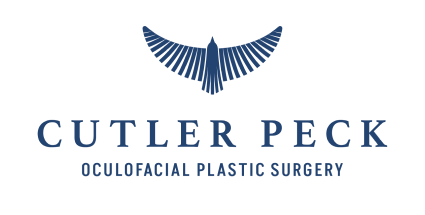Acne is an unfortunate condition that can have a variety of physical and psychological impacts. One of these unfortunate impacts is that moderate and severe acne can leave behind scars that serve as an unsightly reminder after the original acne has faded. So, why do acne scars develop?
The answer to this question has to do with the way that acne impacts the skin. A trained dermatologist can assess these issues and determine the best course forward for treatment.
If you are suffering from acne, take a look at this guide that can assist you with dealing with the scars that might be produced, as well as your options for acne scar treatment.
What Are Acne Scars?
Acne scars develop on the surface of the skin in the aftermath of acne outbreaks. Several varieties and sub-types of acne scars can be produced, depending on the type of acne that they follow.
Why Do Acne Scars Develop?
Acne scars develop due to the inflammation that is produced on the surface of the skin by acne. Acne causes the pores to swell and become larger, which subsequently causes a breakdown where the protrusion that is created collapses. This, in turn, causes an abscess or lesion to form on the surface of the skin.
There are many different forms that an acne scar can take. Some scars develop as a loss of skin tissue, while others express themselves as a protrusion on the skin. Both will leave a patient experiencing a damaged surface layer of skin that is less aesthetically pleasing than what they began with.
Types of Acne Scars
Many acne scars are very mild and fade with time. However, some may leave a lasting mark depending on the severity of the acne and one’s sensitivity to the skin. The main varieties of acne scars that have been observed include the following:
- Boxcar: This is a type of indentation scar that has sharper edges. These edges go down into the skin and are common on the lower cheek and jaw.
- Rolling: These types of scars are typically located on the lower cheeks and jaws where the skin is thick. They often express themselves as indentations that leave the surface of the skin uneven.
- Ice Pick: This is a type of scar so-named as it begins as a wider hole in the skin that narrows to a thin tube at the bottom.
- Keloid: This type of scar rises from the surface of the skin and is caused when the fibrous tissues of collagen overgrow. These scars are often located on the chest and back of a patient.
Acne scarring, although it is oftentimes not terribly severe, is incredibly common. Most individuals who experience acne in adolescence or adulthood will have at least some mild scarring.
How Are Acne Scars Treated?
There are a number of different treatment options available for individuals who are suffering from acne scars. Some of the clinical treatments for this condition include the following:
- Dermabrasion
- Chemical peels
- Laser resurfacing
- Steroid injections
- Microneedling
- Dermal fillers
- Punch grafting
- Cryosurgery (freezing the scars off)
- Excision and subcision
Which treatment you and your physician decide to proceed with will be relevant to your personal medical profile, as well as the severity of your acne scars and the subtype that they fit under. You will discuss this at length with your physician prior to receiving any treatment.
Reducing Your Risk of Acne Scars
There are certain preventative measures you can take to reduce your overall risk of acne scars. Some of the common measures that have been shown to be successful include:
- Quit smoking: Using tobacco has the potential to make one’s acne scars worse. Ceasing tobacco usage has a positive impact.
- Don’t irritate your acne: Picking or manipulating your acne has a higher chance of causing it to produce scarring.
- Treat your acne: Treating your acne before it has the chance to scar has the potential to reduce your overall chance of scarring
- Wear sunblock: Sunlight can have unpredictable impacts on the skin and sometimes cause the lesions produced by acne to react and produce scarring. Wearing sunblock when you spend time outside has the potential to reduce your risk of scarring.
The Top Eyelid Surgeon in Idaho
Dr. Cutler Peck and the rest of the team at Cutler Peck Oculofacial Plastic Surgery are completely dedicated to offering patients the best in eyelid surgery and beyond. If you are interested in receiving a consultation regarding removing acne scars, contact our office today to hold an appointment with our eyelid surgeon.

